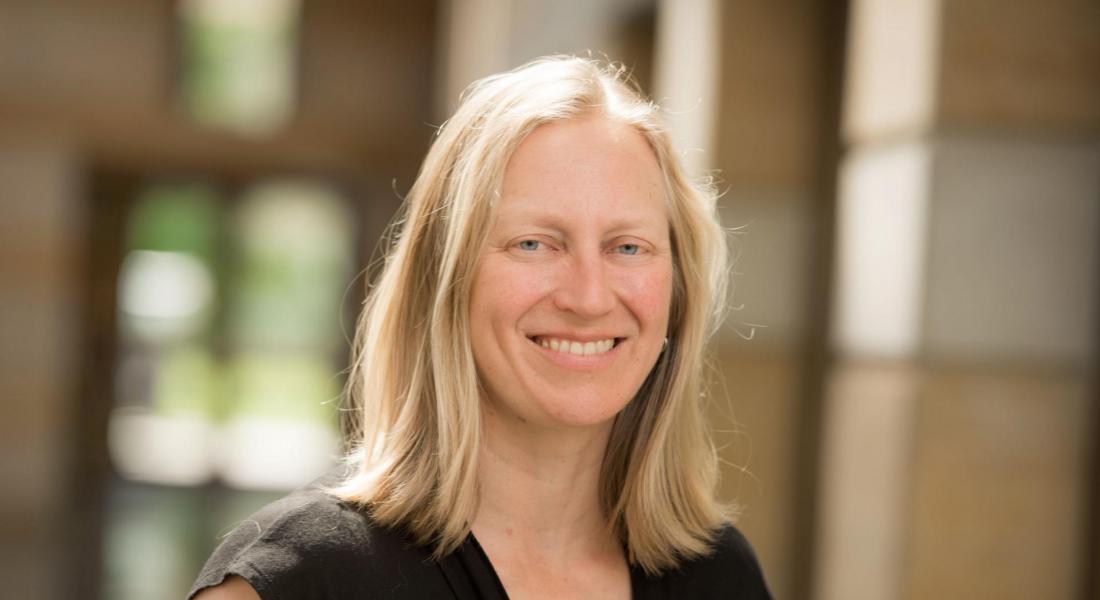
On Friday, December 4, 2020, the University of Notre Dame’s Health and Well-being Initiative is hosting the “COVID-19: What Comes Next” virtual forum. Open to the public, this event will feature speakers addressing four topics including women's health, infrastructure, education, and social underpinnings. In this Q&A, Kellogg Faculty Fellow Catherine Bolten, associate professor of anthropology and peace studies, discusses her research and upcoming presentation. To register for the virtual forum, please click here.
What issues or questions led you to participate in the “COVID-19: What Comes Next?” forum?
As a cultural anthropologist whose focus is on structural violence – forms of suffering that are rendered invisible and potentially normalized by policy and popular narratives – I have been alarmed by the myopic view of COVID-19 that has been created by an overwhelming focus on the number of people who have been infected and died. Though numbers are telling, they have become the rubric for the toll of COVID to the exclusion of all other kinds of suffering, morbidity, and death that have been generated by the pandemic. Beyond the fact that we only have numbers for those people who have been verified through testing to have the disease, these numbers – and the tight focus on them – conceals more than it reveals. In my proposed project, “Because of COVID,” I aim to uncover the hidden toll of the disease on our social world.
Can you provide a summary of your presentation, “Because of COVID: Making Sense of Excess Deaths During a Pandemic.”
The idea of looking into the hidden toll of COVID stems from my work on Ebola in Sierra Leone, where the focus on Ebola deaths overwhelmed the fact that more people died from preventable or treatable causes, such as malaria and complications of pregnancy, than from Ebola simply because the medical system was overwhelmed. They never “counted” as Ebola deaths, but by some estimates over 100,000 people died in West Africa as a result of the Ebola epidemic. Stemming from this, my questions are:
- How has the COVID epidemic impacted the health and well-being of the most marginal members of our community, such as the homeless, uninsured, undocumented, and unemployed?
- What forms of suffering have been deemed acceptable at this time as people have been triaged out of the hospital system because of COVID, who would otherwise receive care?
My plan is to start the research in the South Bend community, with potential to replicate it in other locations in the future.
How do you think the greater community can help you diagnose and understand the vulnerabilities that were exposed in our healthcare system because of the pandemic?
Organizations such as La Casa de Amistad and the Center for the Homeless can help me shed light on how the most marginalized members of our community have navigated the pandemic. Through their networks, my research assistant, Gabriel Ramos, an undergraduate in the Department in Anthropology, and I can generate more concrete lines of inquiry with respect to the invisibilized suffering that has been generated by lockdowns, business closures, and a contraction of “non-essential” services.
How do you think the virtual forum can further support scholarship or collaboration on this topic?
I am excited to find more local organizations that can shed light on these questions, as I think this project has the potential to reveal the previously hidden forms of structural violence that were normalized and considered acceptable before the pandemic. Because the focus has been so squarely on keeping middle-class people at home, getting take-out, and helping their kids with e-learning, the lives and plights of those who do not have these luxuries has been ignored.
What will be the next steps in this work after the forum for the community and/or research?
Gabriel and I will be working to connect with community organizations who can help us develop a concrete research design. We are eager to begin interviewing people in the new year.
Bolten is a concurrent associate professor in the Department of Africana Studies. She is also the director of doctoral studies for the Kroc Institute for International Peace Studies and an affiliated faculty member of the Eck Institute for Global Health. She will present during the “COVID-19: What Comes Next” virtual forum on Friday, December 4, 2020, between 12:30 and 1:30 p.m. View the full forum schedule of speakers and other details online here.
Originally published at hwi.nd.edu.
Contact:
Joanne Fahey / Director of Communications
Notre Dame Research / University of Notre Dame
fahey.17@nd.edu / +1.574.631.9762
research.nd.edu / @UNDResearch
About Notre Dame Research:
The University of Notre Dame is a private research and teaching university inspired by its Catholic mission. Located in South Bend, Indiana, its researchers are advancing human understanding through research, scholarship, education, and creative endeavor in order to be a repository for knowledge and a powerful means for doing good in the world. For more information, please see research.nd.edu or @UNDResearch.





